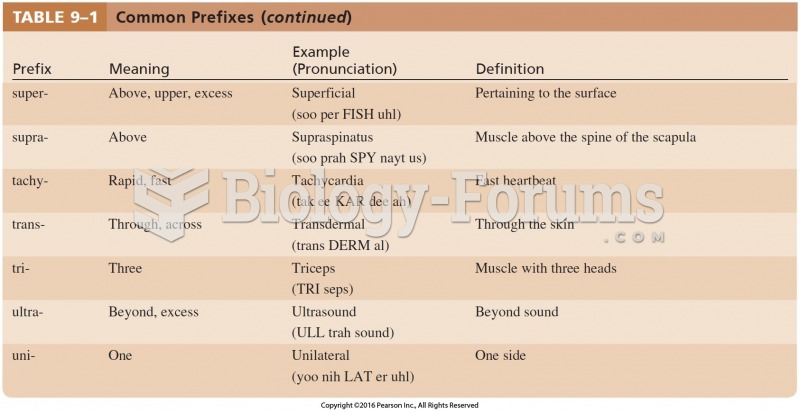|
|
|
Though newer “smart” infusion pumps are increasingly becoming more sophisticated, they cannot prevent all programming and administration errors. Health care professionals that use smart infusion pumps must still practice the rights of medication administration and have other professionals double-check all high-risk infusions.
More than 150,000 Americans killed by cardiovascular disease are younger than the age of 65 years.
Hyperthyroidism leads to an increased rate of metabolism and affects about 1% of women but only 0.1% of men. For most people, this increased metabolic rate causes the thyroid gland to become enlarged (known as a goiter).
The heart is located in the center of the chest, with part of it tipped slightly so that it taps against the left side of the chest.
The horizontal fraction bar was introduced by the Arabs.







